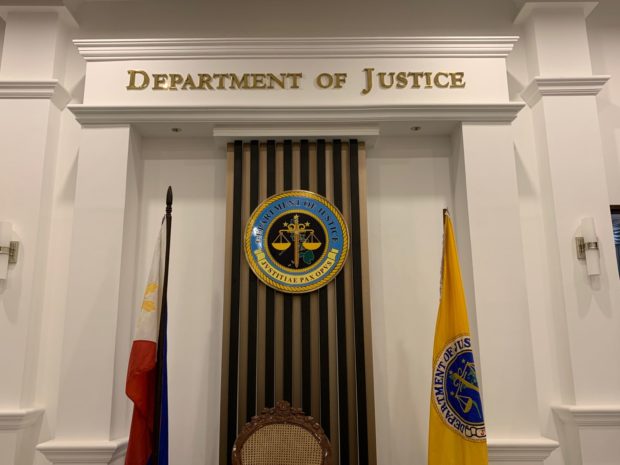DOJ to probe PNP, prosecution’s ‘reprehensible’ handling of P1-B drug case

Department of Justice (DOJ)
MANILA, Philippines — The Department of Justice (DOJ) on Tuesday said it will look into the irregularities cited by the Supreme Court in its decision that pointed out the police and prosecution’s “reprehensible” handling of a P1-billion drug case in 2003.
To recall, the high court in its decision on Monday, penned by Chief Justice Alexander Gesmundo himself, chastised both the police and prosecution due to irregularities starting from the arrest of the accused.
It then resulted in the reversal of a Court of Appeals decision, noting how the police had failed to follow the chain of custody, a strict requirement under the law, resulting in the acquittal of four of the six accused.
According to DOJ spokesperson Mico Clavano, the department will study the SC decision and investigate the irregularities cited as the decision itself may still be appealed by the prosecutor.
“Kung may makita siyang [prosecutor] mali doon sa decision, especially na ang trabaho ng prosecutor ay i-convict doon sa tamang penalty. Kung ang na-rule ng judge ay mas mababa doon sa in-expect niya or doon sa tama, then he is expected to appeal the decision,” said Clavano.
(If he sees something wrong with the decision, especially since the prosecutor’s job is to convict him with the right penalty. If what the judge ruled is less than what he expected or what is correct, then he is expected to appeal the decision.)
“We will have to wait and see kung ano yung nangyari dito. Syempre, kailangan nating alamin, so on the side the prosecutor having to see kung ano talaga ang nangyari sa kaso na ito,” he added.
(We will have to wait and see what happened here. Of course, we have to find out, so on the side of the prosecutor having to see what really happened in this case.)
Clavano, however, said that the Supreme Court displayed its wisdom in the said decision, reaffirming that the chain of custody “has always been, and will be, something that the law enforcement agencies will have to respect and comply with so that the integrity of the cases are kept.”
“So now, especially with the pronouncement of the Supreme Court, it’s reminded us, and it’s a motivation also for the Department of Justice, to comply further with the chain of custody. Which from the very beginning is something that we put pressure on ourselves to comply with,” said Clavano.
Clavano pointed out that police not following the chain of custody is one of the main causes of why many drug cases end up in dismissal and acquittal of suspects.
“Dahil po ‘yung mga law enforcement agents natin doon mismo sa scene of the crime minsan ay nagmamadali, or hindi nila nakikita ‘yung value ng ibang mga evidence or ‘yung proseso,” said Clavano.
(Because our law enforcement agents right there at the scene of the crime are sometimes in a hurry, or they don’t see the value of other evidence or the process.)
“These are things na kailangan nating ayusin, and I think it is just a matter of guidance from our prosecutors. Kasi sila po yung may background sa law. May legal background po yung mga prosecutors natin,” he added.
(These are things that we need to fix, and I think it is just a matter of guidance from our prosecutors. Because they have a background in law. Our prosecutors have a legal background.)
Clavano explained that the DOJ’s Department Circular 020 seeks to fix this, as it requires prosecutors to take an “active role” during the case build-up stage of certain crimes.
When asked on what will happen to the acquitted accused who have been jailed for 20 years, Clavano said that they may claim compensation from the Board of Claims — which he said has certain grounds for compensation in the event of an extended period of stay in detention and then eventually acquitted, or those who have been subject of torture or arbitrary detention.
The case stemmed from a 2003 arrest of five Chinese nationals and one Filipino in police operations conducted on Nov. 10 and 11, 2003, in Valenzuela who were accused of delivering 9,384.7 grams of crystal meth, locally known as shabu, and illegal possession of 119,080 kg of shabu and 111,200 kg of chloromethamphetamine hydrochloride amounting to P1 billion.
RELATED STORY:
SC notes ‘reprehensible’ handling of drug case leading to acquittal of accused